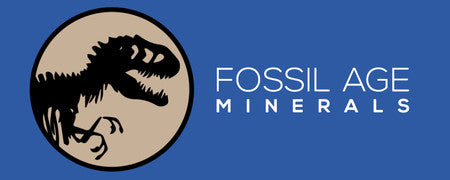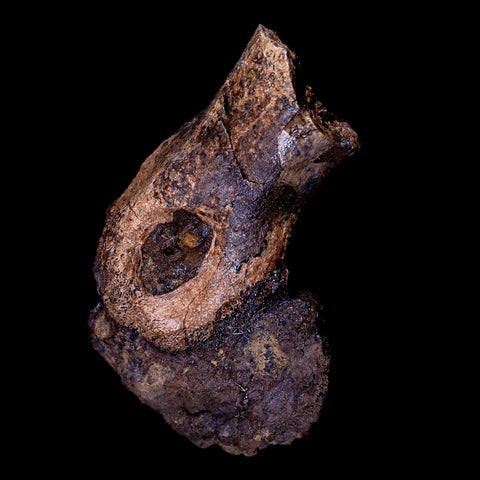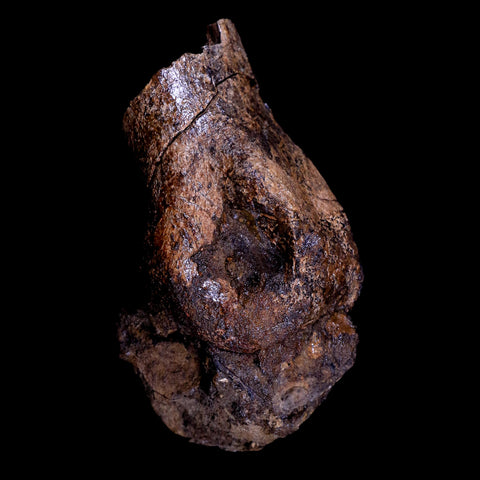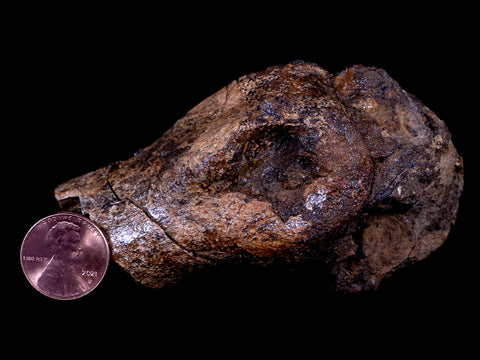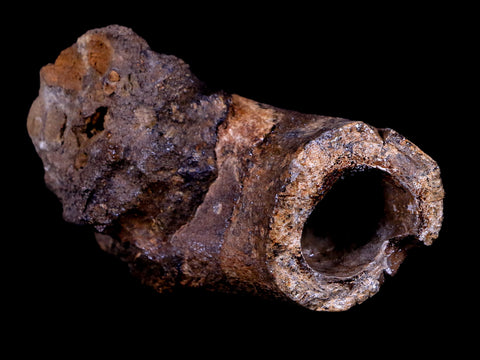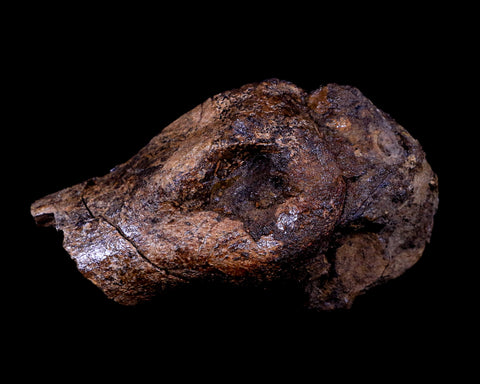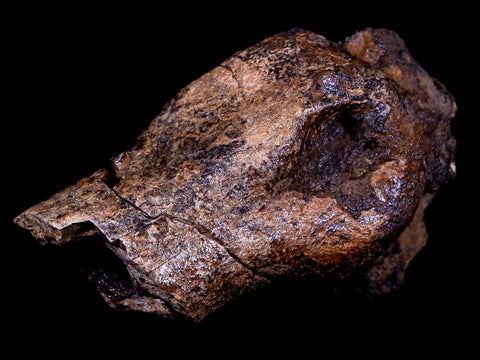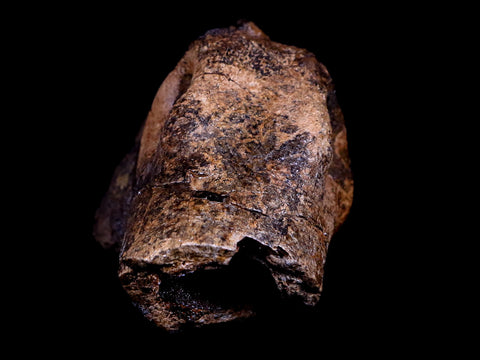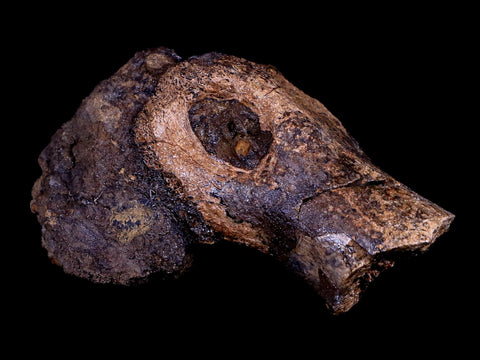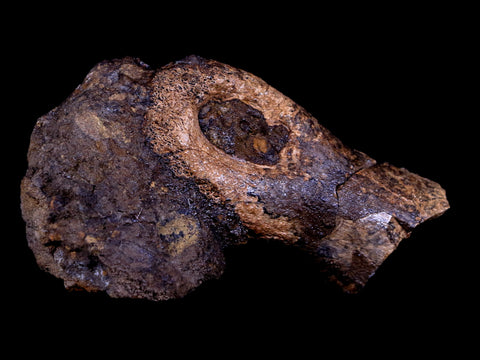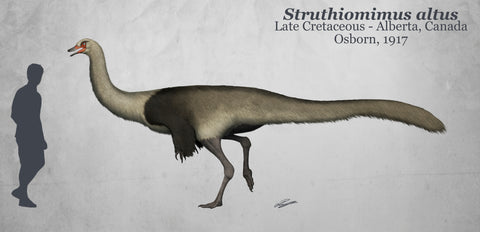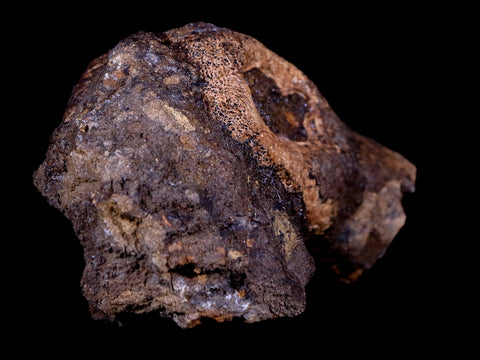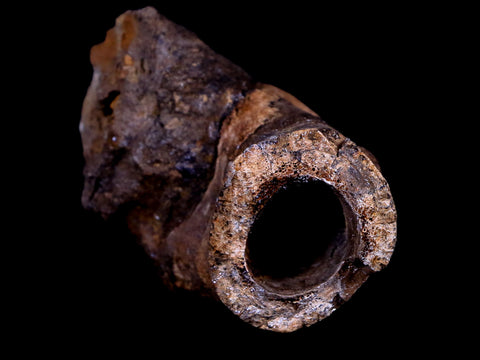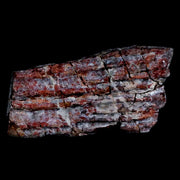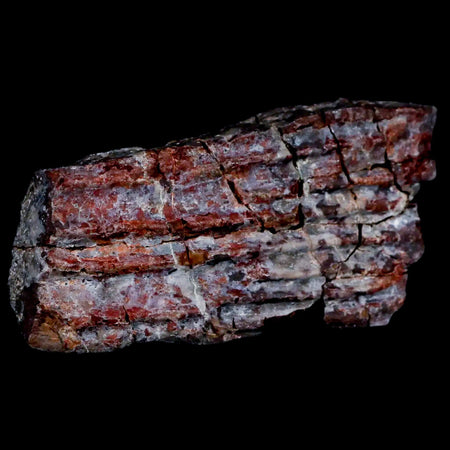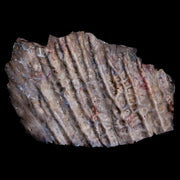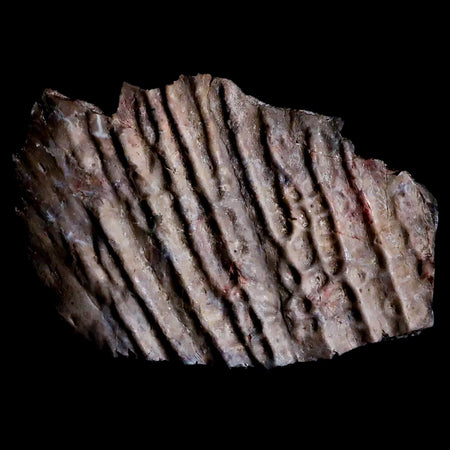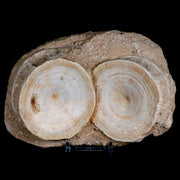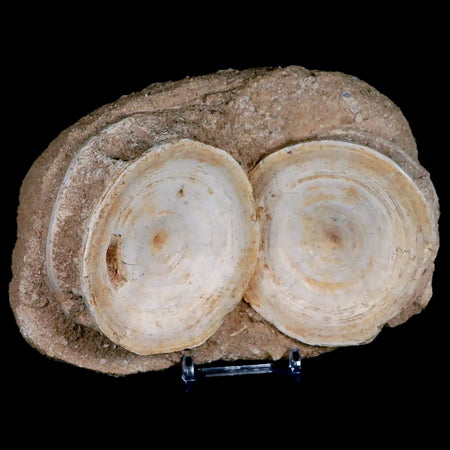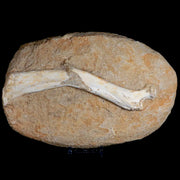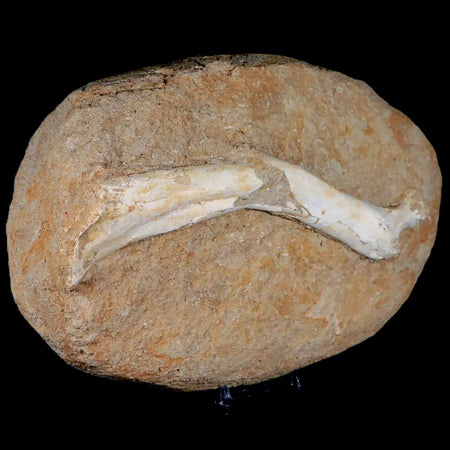3.2" Struthiomimus Fossil Toe Bone Lance Creek FM WY Cretaceous Dinosaur Age
Location: Lance Creek Formation, Weston County, Wyoming (Private Land Origin)
Weight: 5.9 Ounces
Dimensions: 3.2 Inches Long, 2.2 Inches Wide, 1.6 Inches Thick
The item pictured is the one you will receive.
This is a genuine fossil.
Late Cretaceous 67 Million Years Old
Name: Struthiomimus (Ostrich mimic).
Named By: Henry Fairfield Osborn - 1917.
Diet: Uncertain but possibly an omnivore.
Size: 4.3 meters long, 1.4 meters high at the hip.
Known locations: Canada, Alberta - Dinosaur Park Formation, and Horseshoe Canyon Formation. USA - Hell Creek Formation.
Time period: Cretaceous Age
Struthiomimus remains were actually known all the way back to 1901 but were interpreted by Lawrence Lambe to belong to Ornithomimus Altus, the first ornithomimid to be named. In 1917 however, Henry Fairfield Osborn identified key differences in the bones, especially the hands, and renamed the remains as a new genus, Struthiomimus. Despite the difference, Struthiomimus and Ornithomimus are still very much like one another, and between them, they seem to have been the two most common types of ornithomimid active in North America.
The signature feature of Struthiomimus is the hand size in that the hands are proportionately longer in relation to the rest of the arm than in other known ornithomimid genera. With this feature in mind, it’s possible that Struthiomimus may have had a greater reliance upon using its hands for feeding, although like with other ornithomimids this, what Struthiomimus ate remains a mystery to be certain.
Like with its close relatives, Struthiomimus had a keratinous toothless beak in life, which could have been used for a variety of different feeding strategies. Osborn speculated that Struthiomimus was a selective browser that used this narrow beak to pick out the most nutritious parts of plants. The hands could also have been used to reach around branches and pull down more of the plant to be within the range of the mouth.


